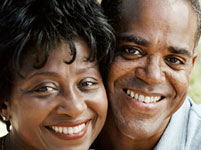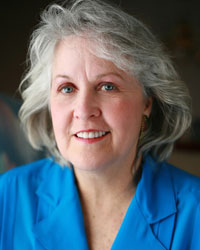Denture Identification

False teeth, like all personal items, can be lost or misplaced. Denture replacement after losing a denture is never a pleasant experience. A person whose denture is lost or misplaced may have difficulty chewing, eating, and speaking, and may be embarrassed by their looks.
Often, a missing denture is linked to being hospitalized or entering a nursing home. Personal items such as dentures or eyeglasses can be misplaced because of an accident, sudden illness, or admission to a hospital. Also, it is not difficult for a nursing home resident or staff member to misplace a denture.
Nursing homes, similar to hospitals, are busy places. Residents often are recovering from serious illness, have recently been discharged from a hospital, are undergoing rehabilitation, or have cognitive and mental health problems such as Alzheimer's disease or dementia. If lost or misplaced prosthodontics are found and they are not labeled with something that identifies its owner, it is very unlikely that it will be returned.
- How a denture can be misplaced in a hospital or nursing home:
- Wrapped in a napkin and left on a food tray
- Placed in pocket of clothing
- Removed during a nap and left in bed sheets
- Other patients take denture
- Staff places denture with another patient's belongings
False teeth can be labeled with an identification label at any time. They can be labeled when they are initially constructed, or the label can be added at a later date. A dentist or prosthodontist inserts the labels in an area of the denture that does not interfere with its function or looks. A dentist or dental technician should be responsible for labeling your prosthodontics. Do not label them yourself with home items such as a felt tip pen or marker. Denture identification can be any combination of a first name, last name, initials, or the first initial of the last name with the last four numbers of your Social Security number.
Loss of false teeth causes inconveniences and problems for the sick, the old, the mentally impaired, and family caregivers. Replacing prosthodontics also requires getting used to the new fit and appearance. Denture replacement also involves cost, arranging for a dental visit, time, and transportation. To eliminate the inconveniences of a lost or misplaced denture, consider the benefits of denture identification.
by Denise J. Fedele, D.M.D., M.S.

+Jim Du Molin is a leading Internet search expert helping individuals and families connect with the right dentist in their area. Visit his author page.
Prosthodontist - Denture and Prosthodontic Questions

Q. What is a prosthodontist?
A. A prosthodontist is a specialist in the restoration and replacement of broken and missing teeth. Their training lasts an additional three years after four years of dental school. During that time, a prosthodontist is taught in greater detail about both removable and fixed prosthodontics.
Removable prosthodontics includes replacing missing teeth with appliances that the patients themselves can take in and out of their mouth, such as dentures and partial dentures.
Fixed prosthodontics includes replacing missing and/or broken teeth with restorations that the patient cannot take in and out, such as veneers, crowns, bridges, and implants.
Q. What are dentures?
A. Dentures are removable prosthetic devices designed to replace missing teeth.
Q. What are complete dentures?
A. Complete dentures are dentures that replace a complete set of missing teeth.
Q. What is the difference between conventional dentures and immediate dentures?
A. Conventional dentures are dentures that are made and placed after the remaining teeth are removed and the tissues have healed. Immediate dentures are dentures that are placed immediately after the removal of the remaining teeth.
Q. What is an over-denture?
A. An over-denture is a denture that fits over a small number of remaining natural teeth or implants.
Q. What do dentures feel like?
A. For a few weeks, new dentures will feel awkward until you become accustomed to them. They might feel loose until the cheek and tongue muscles learn to hold them in position. It is not unusual to feel minor irritation or soreness. The patient needs to see his or her dentist or prosthodontist for regular fit adjustments to relieve any sore areas.
Q. Are you able to eat with dentures?
A. Eating with dentures will take a little practice. You should start with soft foods that are cut into small pieces. As you become used to chewing, you can return to your normal diet.
Q. Are there foods you should avoid if you wear dentures?
A. There are only a few eating restrictions for denture wearers. Avoid biting down directly on crunchy or hard foods, like whole apples, hard pretzels, crusty bread, or large sandwiches. They can break because of the angle where the denture comes into contact with the hard surface.
Biting is limited only by the stability of the dentures themselves. Insufficient bone structure (shrunken bone ridges covered by gum tissue), old or worn dentures, and a dry mouth decrease stability.
Q. If you wear dentures, are dental adhesives necessary?
A. Today's dentures have been significantly improved through advances in both dental and materials technologies. As a result, dentures that fit properly usually do not require adhesives to secure the dentures. When you are just getting used to dentures, adhesives may be advised, but otherwise should not be necessary.
A loose denture is a sign that it doesn't fit your mouth correctly. When first getting used to dentures, you may notice them slipping when you laugh, smile, or cough, which is caused by air getting under the base and moving it. The more you wear dentures, the better you will be able to control their movements in these situations.
If your mouth has insufficient bone structure, dentures will be more difficult to retain. Your dentist or prosthodontist may advise the placement of implants. These are placed in the bone and retain the denture with small, precision attachments.

+Jim Du Molin is a leading Internet search expert helping individuals and families connect with the right dentist in their area. Visit his author page.











